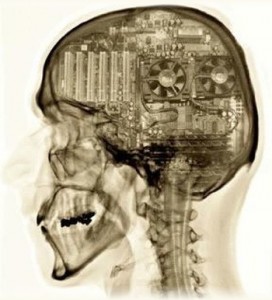Mobile search engines contain different algorithms and bots than used for traditional web searches. They evaluate websites as it is being rendered on a mobile phone. The ranks are computed based on how well the page is rendered for the phone that submits the queries. One thing you can do to improve your mobile SEO is to make verify the user agents, and the mobile crawlers can pick up your content.
Mobile phone search engines are not as finely tuned as traditional search engines. They are still placing tons of weight on bounce rates and using mobile visitors as barometers for how websites renders on phones.
One neat suggestion in improving your mobile search results is to follow traditional SEO strategies. Mobile indexes and bots determine different from web search. The differences entail things such as alt tags; heading tags and title tags are still dominant with mobile SEO.
After performing traditional SEO strategies, it proves necessary to create a secondary mobile sheet from your website. This will allow for formatting of existing pages to be viewed on mobile phones without having to create separate content. It gives you strength with the SEO value that you have already performed on your website minus creating new pages. You can use the mobile style sheet to assist in blocking things from being rendered with using a “display: none” on the style sheet. All mobile phones with the exception of iPhones can automatically pull the “handheld” style sheet.
iPhones determine different with not searching for mobile “handheld” style sheets. In addressing this critical problem, ensure that you copy your handheld sheet, and create on that is geared for the iPhone. The iPhone is meant to render entire website pages, and people statistically still prefer mobile-formatted content on their iPhones.
 Sometimes, mobile search engines will rank traditional pages but consider them ill-suited for rending on mobile phones even with mobile-specific style sheets. When this happens, the mobile search engine will rank the traditional content but “transcode” it for viewing on mobile phones.
Sometimes, mobile search engines will rank traditional pages but consider them ill-suited for rending on mobile phones even with mobile-specific style sheets. When this happens, the mobile search engine will rank the traditional content but “transcode” it for viewing on mobile phones.
Transcoded versions of websites are hosted on temporary subdomains on search engine’s domains. Typically, this provides a user experience that proves under-optimized. This is because navigation sometimes is broken or misplaced and the individual pages are separated into different pages for faster downloading. This can prove problematic when it comes to tracking activity on your mobile website, and if someone links to your content, the website might not receive credit for the links. Address this problem with a “no-transform”header of your content. The no-transform in the cache-control should stop transcoding.
Next, you should include a mobile-site map. Google provides tools that can help you in building one of these. For website owners using multiple-markup languages such as WML (Wireless Markup Language) or XHTML, you should submit separate mobile sitemaps per languages being used on the website. Ensure that you link to mobile site maps in your robots.txt file, the same as you would for traditional site maps.
When you are submitting a mobile site map, add the mobile style sheet and the no-transform tag for this should confirm fitting in getting the mobile search engines to rank your content. Another excellent tip is to make sure your traditional content will work on mobile phones. This will provide the best chance of faring well with higher numbers of browsers and phones.
If your content on your website does not include external style sheets, or contains sloppy code or too many media files, the content will have problems rending on mobile phones. You might want to make mobile-specific content on a mobile sub-directory or sub-domain. This can generate tons of problems for SEO strategists because it can end-up splitting traffic and links between two sets of similar pages.
You should use a “handheld” style sheet with the no-transform designation. You can also re-arrange code so that it proves more suited for crawling and rendering. Redirection and browser-detection and self-selection are how websites and mobile phones interact with one another. Browser detection and re-direction is the process that appears to see what browser the website visitor is using to access your website. If the mobile browser is requesting the traditional website, a single PHP script can redirect the user to the mobile phone website. If a browser is requesting the mobile website, it can redirect them to the traditional website. This proves helpful if your website out-ranks your mobile website in mobile searches.
When you think of mobile SEO, the act alone proves dangerous to create a duplicate copy of your website and placing it in a sub-domain. Most website owners think that mobile phones are capable of interpreting the duplication, but unbelievably, they can become confused. When confusion occurs, your new mobile content has a very-little chance of outranking your traditional website in the mobile searches. Redirection and browser-detection should take care of these issues, but there is always a chance of duplicate content taking away value from the content located on the main website.
If this happens, you can try using a canonical tag that will promote the value from your mobile website back to your main website. You can then rely on your browser-detection and re-direction to take care of it. What proves dangerous in this scenario is that you might hurt your rankings for searches on the primitive mobile phones. The reason is that you are pushing the total SEO value into non-mobile content.
